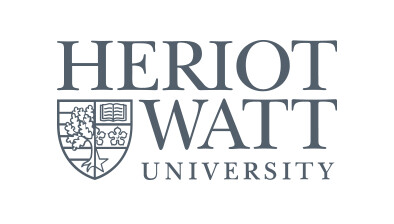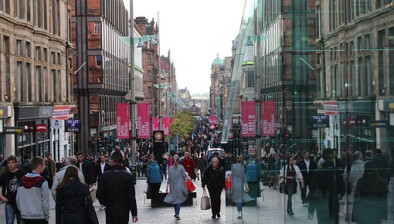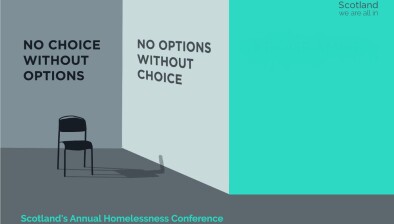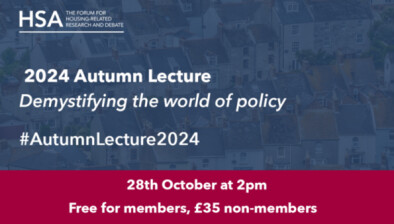Heriot-Watt teams up with Homeless World Cup to tackle social exclusion

The Homeless World Cup has forged a ground-breaking partnership with Heriot-Watt University and Oriam to tackle the pressing challenges of social exclusion and deprivation head-on.
In a significant milestone, all three organisations have signed a Memorandum of Understanding (MoU), demonstrating their shared commitment to raising awareness about homelessness and its far-reaching societal impact. This collaboration also seeks to pave the way for innovative global research initiatives aimed at addressing the issue.
An essential aspect of the partnership entails research, training, workshops and a future conference on homelessness, jointly organised by Heriot-Watt University and the Homeless World Cup Foundation. All this key work will serve as a platform to bring together experts, practitioners, and advocates to share insights, exchange ideas, and formulate strategies to combat homelessness effectively.
Furthermore, Oriam is making available its world-class facilities to the Homeless World Cup Foundation, which will include a variety of activities including coaching referees to be able to facilitate at future Homeless World Cup tournaments and any other training opportunities available to the Homeless World Cup family across the globe. This began in early June, when 12 referees participated in a comprehensive two-day course at Oriam, known as ‘Training of Trainers’. Its objective was to enhance the abilities of each referee so they could return to their respective regions and train others in the Homeless World Cup format, thereby expanding the tournament’s global reach and influence.
This important collaboration marks the first-ever agreement between the Homeless World Cup and a university, signalling a promising and proactive step towards fostering sustainable change in the global fight against homelessness.
The Homeless World Cup is about new beginnings. An opportunity for players who’ve come through difficult circumstances to feel the pride of pulling on their nation’s jersey. A platform for progress towards to a better life.
This theme was ever more evident on Day 5 of the recent Sacramento 2023 Homeless World Cup. Off the pitch, a groundbreaking campaign, Cities Ending Homelessness, was launched at a ‘Believing in Better’ symposium at California State University, Sacramento.
Suzanne Fitzpatrick, professor of housing and social policy at Heriot-Watt University, was a guest speaker joining Mel Young, co-founder and president of the Homeless World Cup, and two-time Olympian Hope Solo on the stage.
Welcoming the new partnership is Professor Mark Biggs, vice-principal and provost of Heriot-Watt University, who says homelessness remains an ever-present problem.
He said: “This agreement paves the way for an unprecedented collaboration that harnesses the expertise and resources of Heriot-Watt and sports to effect real social change. By joining forces, we become catalysts of change.
“Through our world-leading research and educational work in social policy, engineering, sports and other areas, we will empower, enlighten, and instil hope in those who have faced the hardships of homelessness.
“Importantly, our MoU is underpinned by four pillars of research, training, building, and a groundbreaking conference, which will guide the partnership in addressing the multifaceted challenges of homelessness.”
The scale of global homelessness is a huge problem and Britain’s homelessness problem is alarming. More than 300,000 individuals and families across the country could be forced into homelessness this year alone, with thousands suffering the worst forms including rough sleeping, sofa surfing and living in temporary accommodation.
I-Sphere, a research centre at Heriot-Watt University, has made significant contributions to the understanding of homelessness through its impactful research. Its studies have shed light on the complex factors contributing to homelessness and influenced fundamental legal changes to better protect homeless people in Scotland, England and Wales.
The Homeless World Cup returned this month after a four-year hiatus due to the Covid-19 pandemic.
Mel Young of the Homeless World Cup, headquartered in Edinburgh, said: “The statistics surrounding homelessness are unacceptable and an issue that should concern the public.
“Raising awareness in this new partnership between Heriot-Watt and Oriam alongside the introduction of innovative global research initiatives aimed at addressing the issue is a significant step forward in our long-standing vision of a world without homelessness.
“The Homeless World Cup is a football tournament with purpose, and we are delighted to introduce a new annual conference in 2024 homelessness and the solutions. Our year-round work culminates in a world class event and now an impactful conference which has the power to transform the lives of participants and shape attitudes towards homelessness.”
Ross Campbell, executive director of Oriam, based at Heriot-Watt’s Edinburgh campus, said: “This pivotal agreement embodies our collective dedication to combat the daunting challenges of homelessness.
“Together, we can forge a path of cooperation, resilience, and compassion, illuminating a beacon of hope for those affected by this pressing issue.
“I’m proud that Oriam and its first-class facilities can play an important role in this agreement, and I look forward to working closely with colleagues at Heriot-Watt University and the Homeless World Cup to uplift lives, empower individuals, and pave the way towards a future where homelessness is a distant memory.
“Today, we embark on a journey that transcends boundaries, bridging academia, sports, and social change, knowing that together we possess the strength to change countless lives and create a society that cherishes the dignity and potential of every individual.”
The Homeless World Cup launched in Graz, Austria in 2003. Since then, it has been an annual event, giving fresh hope to thousands of socially deprived groups. Each year, teams of men and women who are homeless or have experienced homelessness get the chance to represent their country during the tournament.







